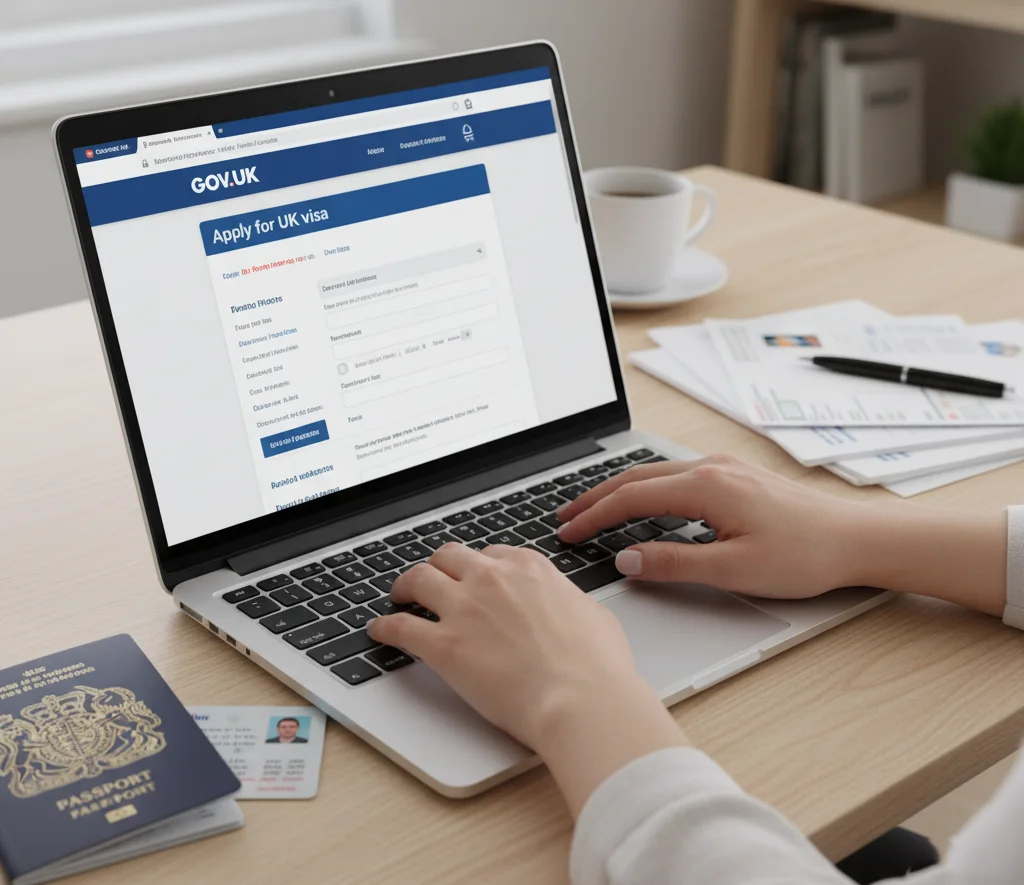The Skilled Worker Visa provides a vital pathway for international professionals to live and work in the UK legally. With major regulatory changes coming into effect in 2025, understanding eligibility and application procedures is crucial for applicants and employers alike. This comprehensive guide covers everything from eligibility, recent reforms, to the detailed application process and beyond, ensuring you are well-prepared for success.
What is the Skilled Worker Visa?

This visa replaced the Tier 2 (General) visa and operates within a points-based immigration system. It is designed to support UK employers in sponsoring skilled overseas workers for in-demand jobs across various sectors. You may stay up to five years, with a pathway to Indefinite Leave to Remain, bringing eligible dependents along.
Key 2025 Changes
As of July 22, 2025, the UK Government raised eligibility standards:
- The minimum skill requirement moved from RQF Level 3 (A-level equivalent) to RQF Level 6 (graduate level).
- The general salary threshold increased to £41,700 per year or the going rate for your occupation, whichever is higher.
- Exceptions and discounts exist for PhD holders, health and care workers, and new entrants.
- The Immigration Salary List is expiring by 2026, replaced by a Temporary Shortage List for limited roles.
These shifts narrow eligibility and emphasize higher-skilled positions.
Employer and Sponsor Requirements
Employers must hold an A-rated sponsor licence granted by UK Visas and Immigration. This involves rigorous checks of legal compliance, HR systems management, and ongoing reporting duties. Employers pay the Immigration Skills Charge and must assign a Certificate of Sponsorship (CoS) to workers as proof of genuine vacancies.
Worker Eligibility and the 70-Point System
Applicants earn points for:
- A valid job offer and CoS from a licensed sponsor (20 points).
- Meeting the skill level requirement at RQF Level 6 or above (20 points).
- English proficiency at CEFR B1 (10 points).
Additional tradeable points (20) are granted mainly based on salary levels and educational qualifications. You must also demonstrate sufficient funds (£1,270) to maintain yourself unless the employer certifies maintenance.
Also Read: How a Transformation Consultant Drives Business Success
Step-by-Step Application Process

- Secure job offer and verify employer sponsorship.
- Gather all documents including proof of job, English language, financial evidence, passport, and TB test or criminal record certificate if applicable.
- Submit an online application with applicable fees (visa application fee and Immigration Health Surcharge).
- Attend biometric collection and identity verification appointment or use the UK Immigration ID Check app.
- Track your application progress and wait for a decision, typically 3 weeks outside the UK or 8 weeks inside.
- Once approved, receive your visa and plan your entry, registration, and settling in the UK.
Switching and Extensions
Certain visa holders (student, graduate, family) can switch to a Skilled Worker Visa inside the UK, provided they meet all requirements. Extensions align with the original visa duration and require fresh salary and role compliance checks.
Fees and Financial Planning
Application fees vary (£610-£1,423), with reduced rates for shortage occupations. All applicants pay the Immigration Health Surcharge (£624 per year for adults). Additional costs include English tests, TB tests, and priority service fees.
Common Mistakes and How to Avoid Them

Avoid incomplete or outdated documents, incorrect SOC (Standard Occupational Classification) coding, under-reporting income or funds, and missing biometric appointments. Employers should maintain current sponsor licences and accurate job descriptions to prevent refusals.
Conclusion
Navigating the Skilled Worker Visa process can appear daunting, especially with the evolving landscape of UK immigration rules set for 2025 and beyond. However, with careful preparation, understanding the eligibility criteria, and following the step-by-step application process outlined in this guide, applicants and employers are well-positioned for success. The Skilled Worker Visa not only opens doors to valuable employment in the UK but also offers a pathway toward permanent residence and family reunification. Remember to stay updated with regulatory changes, maintain clear communication with your sponsor, and seek professional immigration advice for complex situations. Your journey toward skilled employment in the UK starts with informed decisions and thorough preparation.
Frequently Asked Questions (FAQs)
1. How long does the Skilled Worker Visa application process take?
The processing time typically ranges from 3 weeks for applications submitted outside the UK to up to 8 weeks for in-country applications. Priority and super-priority services are available for faster decisions.
2. Can I bring my family with me on a Skilled Worker Visa?
Yes, eligible dependents including your spouse, civil partner, unmarried partner (with 2+ years cohabitation), and children under 18 can join you. They have rights to work and study in the UK during their stay.
3. What are the salary requirements for the Skilled Worker Visa in 2025?
The general salary threshold is £41,700 annually or the going rate for the role, with exceptions and discounts for PhD holders, health and care workers, new entrants, and roles on the Temporary Shortage List.
4. What happens if I lose my job while holding a Skilled Worker Visa?
If you lose your job, your visa may be curtailed, typically allowing a grace period of 60 days to find new sponsorship or switch visa categories. It is essential to act promptly to avoid overstaying.
5. Can I switch to a Skilled Worker Visa from another visa type while in the UK?
Certain visa holders, such as students, graduates, family visa holders, and Tier 5 temporary workers, may switch to a Skilled Worker Visa if they meet all requirements and have a valid Certificate of Sponsorship.
6. Do I need to prove English language proficiency to apply for the Skilled Worker Visa?
Yes, applicants must demonstrate a minimum B1 level of English proficiency, proven by approved qualifications or tests.
7. What is a Certificate of Sponsorship (CoS), and who provides it?
A CoS is a unique reference number issued by a licensed UK employer who sponsors your visa application, confirming your job offer and eligibility.

